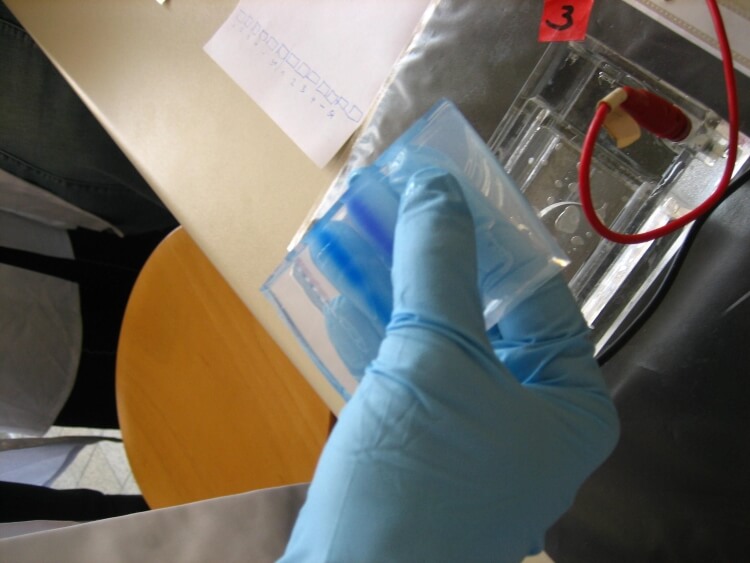3h
Rabbit TFPI(Tissue Factor Pathway Inhibitor) ELISA Kit
Rabbit TFPI(Tissue Factor Pathway Inhibitor) ELISA Kit
tissue
10ng/mL
Sandwich
0.058ng/mL
0.156-10ng/mL
Oryctolagus cuniculus
Metabolic pathway;Hematology;
ELISA Enzyme-linked immunosorbent assays Code 90320007 SNOMED
TFI; EPI; LACI; TFPI1; Lipoprotein-Associated Coagulation Inhibitor; Extrinsic pathway inhibitor
E05 478 566 350 170 or Enzyme-Linked Immunosorbent Assays,E05 478 566 350 170 or Enzyme-Linked Immunosorbent Assays
Rabbits are used for polyclonal antibody production by ELK Biotech. Rabbit antibodies are very stable and can be stored for several days at room temperature. ELK Biotech adds sodium azide and glycerol to enhance the stability of the rabbit polyclonal antibodies. Anti-human, anti mouse antibodies to highly immunogenic selected peptide sequences are" monoclonal like" since the epitope to which they are directed is less than 35 amino acids long.
The test principle applied in this kit is Sandwich enzyme immunoassay. The microtiter plate provided in this kit has been pre-coated with an antibody specific to Tissue Factor Pathway Inhibitor (TFPI). Standards or samples are then added to the appropriate microtiter plate wells with a biotin-conjugated antibody specific to Tissue Factor Pathway Inhibitor (TFPI). Next, Avidin conjugated to Horseradish Peroxidase (HRP) is added to each microplate well and incubated. After TMB substrate solution is added, only those wells that contain Tissue Factor Pathway Inhibitor (TFPI), biotin-conjugated antibody and enzyme-conjugated Avidin will exhibit a change in color. The enzyme-substrate reaction is terminated by the addition of sulphuric acid solution and the color change is measured spectrophotometrically at a wavelength of 450nm ± 10nm. The concentration of Tissue Factor Pathway Inhibitor (TFPI) in the samples is then determined by comparing the O.D. of the samples to the standard curve.
Aplha, transcription related growth factors and stimulating factors or repressing nuclear factors are complex subunits of proteins involved in cell differentiation. Complex subunit associated factors are involved in hybridoma growth, Eosinohils, eritroid proliferation and derived from promotor binding stimulating subunits on the DNA binding complex. NFKB 105 subunit for example is a polypetide gene enhancer of genes in B cells.Tissue, pathway, proteinase, peptidase, protease ,acrosin, lipoprotein, activator, caspase, trypsin, papain, esterase inhibitors are proteins or receptor ligands or receptor antagonists that bind to an enzyme receptor and decreases its activity. Since blocking an enzyme's activity can kill a pathogen or correct a metabolic imbalance, many drugs are enzyme inhibitors. Not all receptor antagonist that bind to enzymes are inhibitors; enzyme activator ligands or agonists bind to enzymes and increase their enzymatic activity, while enzyme substrates bind and are converted to products in the normal catalytic cycle of the enzyme.6
